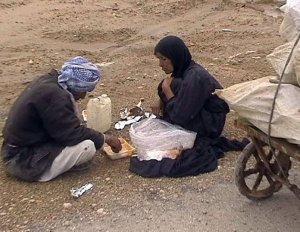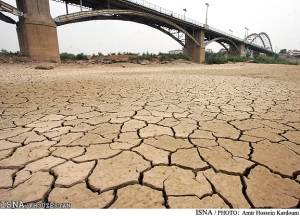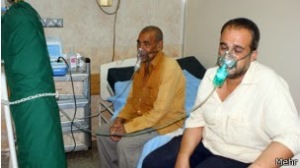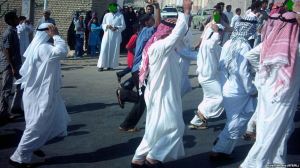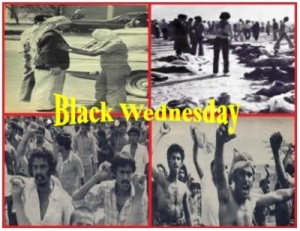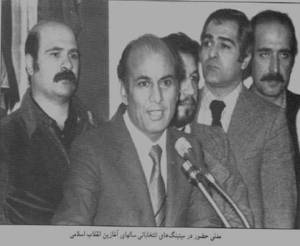 WRITTEN BY Henry Siegman
WRITTEN BY Henry Siegman
Western governments and most of the Western media have accepted a number of Israeli claims justifying the military assault on Gaza: that Hamas consistently violated the six-month truce that Israel observed and then refused to extend it; that Israel therefore had no choice but to destroy Hamas’s capacity to launch missiles into Israeli towns; that Hamas is a terrorist organisation, part of a global jihadi network; and that Israel has acted not only in its own defence but on behalf of an international struggle by Western democracies against this network.
I am not aware of a single major American newspaper, radio station or TV channel whose coverage of the assault on Gaza questions this version of events. Criticism of Israel’s actions, if any (and there has been none from the Bush administration), has focused instead on whether the IDF’s carnage is proportional to the threat it sought to counter, and whether it is taking adequate measures to prevent civilian casualties.
Middle East peacemaking has been smothered in deceptive euphemisms, so let me state bluntly that each of these claims is a lie. Israel, not Hamas, violated the truce: Hamas undertook to stop firing rockets into Israel; in return, Israel was to ease its throttlehold on Gaza. In fact, during the truce, it tightened it further. This was confirmed not only by every neutral international observer and NGO on the scene but by Brigadier General (Res.) Shmuel Zakai, a former commander of the IDF’s Gaza Division. In an interview in Ha’aretz on 22 December, he accused Israel’s government of having made a ‘central error’ during the tahdiyeh, the six-month period of relative truce, by failing ‘to take advantage of the calm to improve, rather than markedly worsen, the economic plight of the Palestinians of the Strip . . . When you create a tahdiyeh, and the economic pressure on the Strip continues,’ General Zakai said, ‘it is obvious that Hamas will try to reach an improved tahdiyeh, and that their way to achieve this is resumed Qassam fire . . . You cannot just land blows, leave the Palestinians in Gaza in the economic distress they’re in, and expect that Hamas will just sit around and do nothing.’
The truce, which began in June last year and was due for renewal in December, required both parties to refrain from violent action against the other. Hamas had to cease its rocket assaults and prevent the firing of rockets by other groups such as Islamic Jihad (even Israel’s intelligence agencies acknowledged this had been implemented with surprising effectiveness), and Israel had to put a stop to its targeted assassinations and military incursions. This understanding was seriously violated on 4 November, when the IDF entered Gaza and killed six members of Hamas. Hamas responded by launching Qassam rockets and Grad missiles. Even so, it offered to extend the truce, but only on condition that Israel ended its blockade. Israel refused. It could have met its obligation to protect its citizens by agreeing to ease the blockade, but it didn’t even try. It cannot be said that Israel launched its assault to protect its citizens from rockets. It did so to protect its right to continue the strangulation of Gaza’s population.
Everyone seems to have forgotten that Hamas declared an end to suicide bombings and rocket fire when it decided to join the Palestinian political process, and largely stuck to it for more than a year. Bush publicly welcomed that decision, citing it as an example of the success of his campaign for democracy in the Middle East. (He had no other success to point to.) When Hamas unexpectedly won the election, Israel and the US immediately sought to delegitimise the result and embraced Mahmoud Abbas, the head of Fatah, who until then had been dismissed by Israel’s leaders as a ‘plucked chicken’. They armed and trained his security forces to overthrow Hamas; and when Hamas brutally, to be sure pre-empted this violent attempt to reverse the result of the first honest democratic election in the modern Middle East, Israel and the Bush administration imposed the blockade.
Israel seeks to counter these indisputable facts by maintaining that in withdrawing Israeli settlements from Gaza in 2005, Ariel Sharon gave Hamas the chance to set out on the path to statehood, a chance it refused to take; instead, it transformed Gaza into a launching-pad for firing missiles at Israel’s civilian population. The charge is a lie twice over. First, for all its failings, Hamas brought to Gaza a level of law and order unknown in recent years, and did so without the large sums of money that donors showered on the Fatah-led Palestinian Authority. It eliminated the violent gangs and warlords who terrorised Gaza under Fatah’s rule. Non-observant Muslims, Christians and other minorities have more religious freedom under Hamas rule than they would have in Saudi Arabia, for example, or under many other Arab regimes.
The greater lie is that Sharon’s withdrawal from Gaza was intended as a prelude to further withdrawals and a peace agreement. This is how Sharon’s senior adviser Dov Weisglass, who was also his chief negotiator with the Americans, described the withdrawal from Gaza, in an interview with Ha’aretz in August 2004:
What I effectively agreed to with the Americans was that part of the settlements [i.e. the major settlement blocks on the West Bank] would not be dealt with at all, and the rest will not be dealt with until the Palestinians turn into Finns . . . The significance [of the agreement with the US] is the freezing of the political process. And when you freeze that process, you prevent the establishment of a Palestinian state and you prevent a discussion about the refugees, the borders and Jerusalem. Effectively, this whole package that is called the Palestinian state, with all that it entails, has been removed from our agenda indefinitely. And all this with [President Bush’s] authority and permission . . . and the ratification of both houses of Congress.
Do the Israelis and Americans think that Palestinians don’t read the Israeli papers, or that when they saw what was happening on the West Bank they couldn’t figure out for themselves what Sharon was up to?
Israel’s government would like the world to believe that Hamas launched its Qassam rockets because that is what terrorists do and Hamas is a generic terrorist group. In fact, Hamas is no more a ‘terror organisation’ (Israel’s preferred term) than the Zionist movement was during its struggle for a Jewish homeland. In the late 1930s and 1940s, parties within the Zionist movement resorted to terrorist activities for strategic reasons. According to Benny Morris, it was the Irgun that first targeted civilians. He writes in Righteous Victims that an upsurge of Arab terrorism in 1937 ‘triggered a wave of Irgun bombings against Arab crowds and buses, introducing a new dimension to the conflict’. He also documents atrocities committed during the 1948-49 war by the IDF, admitting in a 2004 interview, published in Ha’aretz, that material released by Israel’s Ministry of Defence showed that ‘there were far more Israeli acts of massacre than I had previously thought . . . In the months of April-May 1948, units of the Haganah were given operational orders that stated explicitly that they were to uproot the villagers, expel them, and destroy the villages themselves.’ In a number of Palestinian villages and towns the IDF carried out organised executions of civilians. Asked by Ha’aretz whether he condemned the ethnic cleansing, Morris replied that he did not:
A Jewish state would not have come into being without the uprooting of 700,000 Palestinians. Therefore it was necessary to uproot them. There was no choice but to expel that population. It was necessary to cleanse the hinterland and cleanse the border areas and cleanse the main roads. It was necessary to cleanse the villages from which our convoys and our settlements were fired on.
In other words, when Jews target and kill innocent civilians to advance their national struggle, they are patriots. When their adversaries do so, they are terrorists.
It is too easy to describe Hamas simply as a ‘terror organisation’. It is a religious nationalist movement that resorts to terrorism, as the Zionist movement did during its struggle for statehood, in the mistaken belief that it is the only way to end an oppressive occupation and bring about a Palestinian state. While Hamas’s ideology formally calls for that state to be established on the ruins of the state of Israel, this doesn’t determine Hamas’s actual policies today any more than the same declaration in the PLO charter determined Fatah’s actions.
These are not the conclusions of an apologist for Hamas but the opinions of the former head of Mossad and Sharon’s national security adviser, Ephraim Halevy. The Hamas leadership has undergone a change ‘right under our very noses’, Halevy wrote recently in Yedioth Ahronoth, by recognising that ‘its ideological goal is not attainable and will not be in the foreseeable future.’ It is now ready and willing to see the establishment of a Palestinian state within the temporary borders of 1967. Halevy noted that while Hamas has not said how ‘temporary’ those borders would be, ‘they know that the moment a Palestinian state is established with their co-operation, they will be obligated to change the rules of the game: they will have to adopt a path that could lead them far from their original ideological goals.’ In an earlier article, Halevy also pointed out the absurdity of linking Hamas to al-Qaida.
In the eyes of al-Qaida, the members of Hamas are perceived as heretics due to their stated desire to participate, even indirectly, in processes of any understandings or agreements with Israel. [The Hamas political bureau chief, Khaled] Mashal’s declaration diametrically contradicts al-Qaida’s approach, and provides Israel with an opportunity, perhaps a historic one, to leverage it for the better.
Why then are Israel’s leaders so determined to destroy Hamas? Because they believe that its leadership, unlike that of Fatah, cannot be intimidated into accepting a peace accord that establishes a Palestinian ‘state’ made up of territorially disconnected entities over which Israel would be able to retain permanent control. Control of the West Bank has been the unwavering objective of Israel’s military, intelligence and political elites since the end of the Six-Day War.[*] They believe that Hamas would not permit such a cantonisation of Palestinian territory, no matter how long the occupation continues. They may be wrong about Abbas and his superannuated cohorts, but they are entirely right about Hamas.
Middle East observers wonder whether Israel’s assault on Hamas will succeed in destroying the organisation or expelling it from Gaza. This is an irrelevant question. If Israel plans to keep control over any future Palestinian entity, it will never find a Palestinian partner, and even if it succeeds in dismantling Hamas, the movement will in time be replaced by a far more radical Palestinian opposition.
If Barack Obama picks a seasoned Middle East envoy who clings to the idea that outsiders should not present their own proposals for a just and sustainable peace agreement, much less press the parties to accept it, but instead leave them to work out their differences, he will assure a future Palestinian resistance far more extreme than Hamas one likely to be allied with al-Qaida. For the US, Europe and most of the rest of the world, this would be the worst possible outcome. Perhaps some Israelis, including the settler leadership, believe it would serve their purposes, since it would provide the government with a compelling pretext to hold on to all of Palestine. But this is a delusion that would bring about the end of Israel as a Jewish and democratic state.
Anthony Cordesman, one of the most reliable military analysts of the Middle East, and a friend of Israel, argued in a 9 January report for the Center for Strategic and International Studies that the tactical advantages of continuing the operation in Gaza were outweighed by the strategic cost and were probably no greater than any gains Israel may have made early in the war in selective strikes on key Hamas facilities. ‘Has Israel somehow blundered into a steadily escalating war without a clear strategic goal, or at least one it can credibly achieve?’ he asks. ‘Will Israel end in empowering an enemy in political terms that it defeated in tactical terms? Will Israel’s actions seriously damage the US position in the region, any hope of peace, as well as moderate Arab regimes and voices in the process? To be blunt, the answer so far seems to be yes.’ Cordesman concludes that ‘any leader can take a tough stand and claim that tactical gains are a meaningful victory. If this is all that Olmert, Livni and Barak have for an answer, then they have disgraced themselves and damaged their country and their friends.’
15 January
Note
[*] See my piece in the LRB, 16 August 2007.
Henry Siegman, director of the US Middle East Project in New York, is a visiting research professor at SOAS, University of London. He is a former national director of the American Jewish Congress and of the Synagogue Council of America.
http://www.lrb.co.uk/v31/n02/sieg01_.html
LRB contributors react to events in Gaza
Tariq Ali, David Bromwich, Alastair Crooke, Conor Gearty, R.W. Johnson, Rashid Khalidi, Yitzhak Laor, Yonatan Mendel, John Mearsheimer, Gabriel Piterberg, Jacqueline Rose (certainly to be published elsewhere), Eliot Weinberger, Michael Wood.
January 15, 2009
http://www.lrb.co.uk/web/15/01/2009/mult04_.html#tariqali
Tariq Ali
A few weeks before the assault on Gaza, the Strategic Studies Institute of the US Army published a levelheaded document on ‘Hamas and Israel’, which argued that ‘Israel’s stance towards the democratically-elected Palestinian government headed by Hamas in 2006, and towards Palestinian national coherence – legal, territorial, political and economic – has been a major obstacle to substantive peacemaking.’ Whatever their reservations about the organisation, the authors of the paper detected signs that Hamas was considering a shift of position even before the blockade:
It is frequently stated that Israel or the United States cannot ‘meet’ with Hamas (although meeting is not illegal; materially aiding terrorism is, if proven) because the latter will not ‘recognise Israel’. In contrast, the PLO has ‘recognised’ Israel’s right to exist and agreed in principle to bargain for significantly less land than the entire West Bank and Gaza Strip, and it is not clear that Israel has ever agreed to accept a Palestinian state. The recognition of Israel did not bring an end to violence, as wings of various factions of the PLO did fight Israelis, especially at the height of the Second (al- Aqsa) Intifada. Recognition of Israel by Hamas, in the way that it is described in the Western media, cannot serve as a formula for peace. Hamas moderates have, however, signaled that it implicitly recognises Israel, and that even a tahdiya (calming, minor truce) or a hudna, a longer-term truce, obviously implies recognition. Khalid Mish’al states: ‘We are realists,’ and there is ‘an entity called Israel,’ but ‘realism does not mean that you have to recognise the legitimacy of the occupation.’
The war on Gaza has killed the two-state solution by making it clear to Palestinians that the only acceptable Palestine would have fewer rights than the Bantustans created by apartheid South Africa. The only acceptable alternative is a single state for Jews and Palestinians with equal rights for all. Certainly it seems utopian at the moment with the two Palestinian parties in Israel Balad and the United Arab List – both barred from contesting the February elections. Avigdor Lieberman, the chairman of Yisrael Beitenu, has breathed a sigh of satisfaction: ‘Now that it has been decided that the Balad terrorist organisation will not be able to run, the first battle is over.’ But even victory has its drawbacks. After the Six-Day War in 1967, Isaac Deutscher warned his one-time friend Ben Gurion: ‘The Germans have summed up their own experience in the bitter phrase “Mann kann sich totseigen!” — you can triumph yourself to death. This is what the Israelis have been doing. They have bitten off much more than they can swallow.’
Five hundred courageous Israelis have sent a letter to Western embassies calling for sanctions and other measures to be applied against their country, echoing the 2005 call by numerous Palestinian organisations for Boycott, Divestment and Sanctions (BDS) on the South African model. This will not happen overnight but it is the only non-violent way to help the struggle for freedom and equality in Israel-Palestine.
Tariq Ali’s latest book is The Duel: Pakistan on the Flight Path of American Power.
David Bromwich
Like the suicide bombings of the Second Intifada, the rockets from Gaza were a choice of tactics of a spectacular vengefulness. The spectacle was greater than the damage: no Israeli had been killed by a rocket before the IDF launched their assault. Yet the idea of rockets falling induces terror, whereas the idea of an army invading a neighbouring territory has an official sound. The numbers of the dead as of 15 January, more than 1000 Palestinians and fewer than 20 Israelis tell a different story. Many people remain unmoved by the tremendous disproportion because they cannot get the image of rockets out of their heads.
In the United States, since this one-sided war began on 27 December, facts are not suppressed but fiction pervades the commentary. We are offered an analogy: what would Americans do if rockets were fired from Canada or Cuba? The question has been repeated with docility by congressional leaders of both parties; but the rockets are assumed to come suddenly without cause. The choking of the Gaza Strip by land, sea and air, the rejection by the US of the Palestinian Unity Government, the coup launched by Fatah and bankrolled by the US, which ended in the seizure of power by Hamas all of this happened before the rockets fell from thee sky. It is as if it belonged to a prehistoric time.
American politicians exhibit an identification with Israel that is now in excess of the measurable effects of the Israel lobby. The blindness of the identification has led the US to respond with keen sensitivity to Israeli requests for assistance and moral support, and to underestimate the suffering caused by the Gaza blockade and by the settlements and checkpoints and the wall on the West Bank. Yet grant the potency of the lobby and the identification even so, the arrogance with which Israel dictates policy is hard to comprehend on the usual index of motives. Ehud Olmert boasted to a crowd in Ashkelon on 12 January that with one phone call to Bush, he forced Condoleezza Rice to abstain from voting for the UN ceasefire resolution she herself had prepared. The depth, the efficacy and the immediacy of the influence are treated by Olmert as an open secret.
To judge by the nomination of Hillary Clinton as secretary of state and the likely nomination of Dennis Ross as Middle East envoy, Obama wants to be seen as someone who intends no major change of course. In a televised interview on 11 January, he said he would deal with Israel and Palestine in the manner of the Clinton and Bush administrations. The unhappy message of his recent utterances has been reconciliation without truth; and reconciliation, above all, for Americans. This preference for bringing-together over bringing-to-light is a trait of Obama’s political character we are only now coming to see the extent of. It is an element -until lately an unperceived element- of a certain native moderation of temper that is likely to mark his presidency. Yet his silence on Gaza has been startling, even immoderate. The ascent of Barack Obama was connected in the world as well as in the US with peculiar and passionate hopes, and his chances of emerging as a leader of the world are diminished with every passing day of silence.
David Bromwich teaches English at Yale.
Alastair Crooke
‘We have to ask the West a question: when the Israelis bombed the house of Sheikh Nizar Rayan, a Hamas leader, killing him, his wives, his nine children, and killing 19 others who happened to live in adjoining houses because they saw him as a target, was this terrorism? If the West’s answer is that this was not terrorism, it was self-defence then we must think to adopt this definition too.’
This was said to me by a leading Islamist in Beirut a few days ago. He was making a point, but behind his rhetorical question plainly lies the deeper issue of what the Gaza violence will signify for mainstream Islamists in the future.
Take Egypt. Mubarak has made no secret of his wish to see Israel teach Hamas a ‘lesson’. Hamas are sure that his officials urged Israel to proceed, assuring Amos Yadlin, Israel’s Head of Military Intelligence, at a meeting in Cairo that Hamas would collapse within three days of the Israeli onslaught.
Islamists in Egypt and other pro-Western ‘moderate’ alliance states such as Saudi Arabia and Jordan have noted Israel’s wanton disregard for the deaths of civilians in its desire to crush Hamas. They have seen the barely concealed pleasure of the regimes that run those states. The message is clear: the struggle for the future of this region is going to be uncompromising and bloody.
For all Islamists, the events in Gaza will be definitive: they will tell the story of a heroic stand in the name of justice against overwhelming odds. This archetype was already in place on the day of Ashura which fell this year on 7 January — when Shi’ites everywhere commemorate the martyrdom of Hussein, the Prophet’s grandson, killed by an overwhelming military force at Kerbala. The speeches given by Hassan Nasrallah, Hizbullah’s secretary general, were avidly followed; the ceremony of Ashura drove home the message of martyrdom and sacrifice.
Islamists are likely to conclude from Gaza that Arab regimes backed by the US and some European states will go to any lengths in their struggle against Islamism. Many Sunni Muslims will turn to the salafi-jihadists, al-Qaida included, who warned Hamas and others about the kind of punishment being visited on them now. Mainstream movements such as the Muslim Brotherhood, Hamas and Hizbullah will find it hard to resist the radical trend. The middle ground is eroding fast.
At one level Gaza will be seen as a repeat of Algeria. At another, it will speak to wider struggles in the Arab world, where elites favoured by the West soldier on with no real legitimacy, while the weight of support for change builds up. The overhang may persist for a while yet, but a small event could trip the avalanche.
Alastair Crooke is co-director of Conflicts Forum and has been an EU mediator with Hamas and other Islamist movements. Resistance: The Essence of the Islamist Revolution will come out next month.
Conor Gearty
It is just possible the killings in Gaza may mark the end of Israel’s disastrous plunge into militant Zionism. The key is Obama: will he collapse under pressure like most of his predecessors, or is there more to him? Let us assume he knows how senseless it is for the US to collude in a crime of the kind going on in Gaza. There are ways of marking this without unleashing the pro-Israeli forces against him at too early a stage.
Clearly the new administration desires to re-engage with the global community and revive its commitment to international law: the ‘war on terror’ will be reconfigured and Guantanamo closed. A rededication of the US to law should also involve a more consensual approach to the UN “Security Council business in particular including (for example) support for UN investigative missions to regions where egregious violations of human rights and breaches of the UN charter have occurred. It should entail the US signing up to the International Criminal Court” and urging its closest allies to do likewise. Framed in this way, a US engagement in the international human rights agenda would quickly lead to a crucial re-empowerment of the rapporteurs, special representatives, committees of experts and so on who have languished on the margins for so long.
This reformist energy would then need to be backed by mechanisms along the lines of the MacBride principles or the Comprehensive Anti-Apartheid Act linking US financial and military aid to the newly emerging international legal order. The worst offenders against the new dispensation would run the risk of economic and intellectual boycotts. Since its application would be general, Obama could do all this without any mention of Israel, leaving the consequences to be worked through by various bureaucracies, while the phone calls and special pleas are politely fended off with an easy ‘it is out of my hands’. Were pressure from the lobbies to reach dangerous levels, the president might choose to take the issue to the American people, to discuss openly whether Israel should have an exemption from the system of values to which every other genuine ally and the US itself will by then have signed up. That is not likely to be a debate which the Israeli leadership will want.
Conor Gearty, Rausing Director of the Centre for the Study of Human Rights and professor of human rights law at the LSE, has written a number of books on terrorism and human rights.
R.W. Johnson
The current crisis has probably not changed anything fundamental. As even the more pessimistic Israeli analysts have been noting for some time, the pressure of the crisis has turned many, perhaps most Palestinians into irreconcilable foes of Israel. To that extent the two-state solution, however much the great and good may wish it, gradually becomes less and less of a real solution. The present crisis was probably unavoidable given (a) Iran’s position, (b) the coming Israeli election and (c) the failure of Israel to achieve full-scale victory over Hizbullah last year. That last factor has weighed on all minds, showing Iran how much leverage it had, threatening to turn all Arab-occupied land into rocket-launching grounds and increasing Israeli determination to show that this is a prohibitively expensive option for anyone who opts to host such an exercise. The stalemate seems complete.
I doubt whether Obama will make much difference. His chief of staff is an ex-Israeli soldier and his administration will be heavily in hock to the Israel lobby from day one. Israel may be unhappy that he will talk to Hamas but this unhappiness is quite unnecessary. He is not going to soft-talk them into accepting Israel’s existence and laying down their rockets, so what will such talks really change?
The real key remains US-Iran relations. This was a period in which many expected an Israeli strike against Iranian nuclear facilities. The fact that it has not happened is promising and suggests that the CIA is right to say Iran is not close to having nuclear weapons. As it is the US has hugely strengthened Iran by handing Iraq over to Shi’ites and an Obama administration might try to capitalise on that by making a US-Iranian deal the cornerstone of Middle East politics, thus reducing Syrian, Saudi and Egyptian leverage. Iran would obviously be greatly tempted by such a deal. But if Obama and Ahmadinejad really could reach a deal it would probably be very bad news for both Hizbullah and Hamas, who might get cut off from Iranian aid. If that happens, I can’t see much joy for Palestinian militancy. But if it doesn’t and the US under Obama is left to face an unchanged position, he is bound to end up taking Israel’s side as much as Bush did. Which also doesn’t bode well for militant Palestinians. So whatever happens I’d expect the Palestinians to emerge worse off from this conflict and Israel stronger, though probably less popular.
R.W. Johnson lives in Cape Town.
Rashid Khalidi
It is commonplace to talk about the ‘fog of war’, but war can also clarify things. The war in Gaza has pointed up the Israeli security establishment’s belief in force as a means of imposing ‘solutions’ which result in massive Arab civilian suffering and solve nothing. It has also laid bare the feebleness of the Arab states, and their inability to protect Palestinian civilians from the Israeli military, to the despair and fury of their citizens. Almost from the moment the war began, America’s Arab allies above all Egypt found themselves on the defensive, facing accusations of impotence and even treason in some of the largest demonstrations the region has seen in years. Hassan Nasrallah, the secretary general of Hizbullah in Lebanon, reserved some of his harshest criticism for the Mubarak regime; at Hizbullah rallies, protesters chanted ‘Where are you, Nasser?’ a question that is also being asked by Egyptians.
The Egyptian government and its Arab allies Saudi Arabia, Jordan, Morocco responded to the war much as they responded to thee 2006 invasion of Lebanon: by tacitly supporting Israel’s offensive in the hope of weakening a resistance movement which they see as a proxy for Iran and Syria. When the bombing began, Egypt criticised Hamas over the breakdown of the reconciliation talks with Fatah that Cairo had brokered, and for firing rockets at Israel. The implication was that Hamas was responsible for the war. Refusing to open the Rafah crossing, the Mubarak government pointed out that Israel, the occupying power, not Egypt, was responsibile for the humanitarian situation in Gaza under the Fourth Geneva Convention. Egypt’s concern is understandable: ever since it recovered the Sinai in 1979, it has worried that Israel might attempt to dump responsibility onto it for the Strip’s 1.5 million impoverished residents, a fear that has grown as the prospects of ending the occupation have receded. But its initial refusal to open the crossing to relief supplies, medical personnel and reporters made it difficult for Cairo to deny charges that it was indifferent to Palestinian suffering, and that it valued relations with Israel and the US (its main patron) more highly than the welfare of Gaza’s people.
Since Hamas came to power in Gaza in 2006, Egypt’s press has been rife with lurid warnings echoed in conservative Lebanese and Saudi newspapers, as well as Israeli ones about the establishment in Gaza of an Islamic emirate backed by Iran. Cairo’s distrust of Hamas is closely connected with internal politics: Hamas is an offshoot of the Muslim Brothers, the country’s largest opposition movement; and it came to power in Gaza in the kind of democratic elections that Mubarak has done everything to prevent. (He is likely to be succeeded by his son, Gamal, after sham elections.) When there still seemed hope of a Palestinian Authority (PA) coalition government between Fatah and Hamas (which would have diluted the latter’s power), Egypt was careful to appear balanced. But after the deep split in Palestinian politics that followed the Hamas takeover of Gaza in 2007, Egypt tilted increasingly against Hamas. The division of occupied Palestine into two PAs a Fatah-ruled West Bank and a Hamas-ruled Gaza Strip, both without sovereignty, jurisdiction or much in the way of authority was seen in Cairo as a threat to domestic security: it promised greater instability on Egypt’s borders, jeopardised the negotiated two-state solution with Israel to which Egypt was committed, and emboldened allies of the Muslim Brothers.
Egypt has also been alarmed by Hamas’s deepening relationship with its fiercest adversaries: Iran, Syria and Hizbullah. ‘Moderate’ Arab regimes like the one in Egypt deeply authoritarian, at best, but friendly with the US have favoured peaceful negotiations with Israel, but negotiations have not led to Palestinian independence, or even translated into diplomatic leverage. Resistance movements such as Hizbullah and Hamas, by contrast, can plausibly claim that they forced Israel to withdraw from occupied Arab land while scoring impressive gains at the ballot box; they have also been reasonably free of corruption. As if determined to increase the influence of these radical movements, Israel has undermined Abbas and the PA at every turn: settlements, bypass roads and ‘security barriers’ continue to encroach on Palestinian land; none of the 600 checkpoints and barriers in the West Bank has been removed; and more than 10,000 Palestinian political prisoners languish in Israeli jails. The result has been the erosion of support for the PA, and for the conciliatory approach pursued by the PA and Arab states such as Egypt and Saudi Arabia, which reacted by moving even closer to the Bush administration in its waning days. Mubarak, according to Ha’aretz, urged Olmert to continue the Gaza offensive until Hamas was severely weakened – though Egypt has, of course, denied these reports.
But Hamas will not be so easily defeated, even if Israel’s merciless assault and Hamas’s own obduracy have brought untold suffering on the people of Gaza and much of the Strip lies in ruins: like Hizbullah in Lebanon in 2006, all it has to do in order to proclaim victory is remain standing. The movement continued to fire rockets into Israel under devastating bombardment, and it looks likely to emerge politically stronger when the war is over, although as with Hizbullah, it may have provoked popular resentment for bringing Israeli fire down on the heads of the civilian population: there was little Palestinian popular support for the firing of rockets at Israel in the months before the Israeli offensive. It is doubtful, moreover, whether any Hamas leader will be as shrewd as Hassan Nasrallah after the 2006 Lebanon war, when he admitted that had he known the damage Israel would do, he would not have offered the pretext that triggered its onslaught.
Israel began a propaganda campaign several months ago, when it closed Gaza to journalists in what appears to have been an effort to remove witnesses from the scene before the crime took place. Cell phone transmission was interrupted to prevent the circulation of photos and videos. The result, in Israel and the US, has been an astonishingly sanitised war, in which, in a bizarre attempt at ‘balance’, the highly inaccurate rocket attacks against Israel and their three civilian victims since the fighting began on 27 December have received as much attention as the levelling of Gaza and the killing of more than 1000 Palestinians and the wounding of nearly 5000, most of them civilians. But Arabs and Muslims (and indeed most people not living in the US and Israel) have seen a very different war, with vivid images of those trapped in the Gaza Strip, thanks in large part to Arab journalists on the ground.
During the large demonstrations that erupted in Egypt, Saudi Arabia, Morocco, Jordan and Yemen, condemnation was directed not only at the usual targets, Israel and the US, but also at the passivity, even complicity, of Arab governments. Stung by the protests and fearing popular unrest, several Arab states sent their foreign ministers to New York, led by Prince Sa’ud al-Faisal, the Saudi foreign minister, and forced through a Security Council resolution in the face of American resistance. Jordan withdrew its ambassador from Tel Aviv; Qatar broke off ties with Israel and offered $250 million for the rebuilding of Gaza. At the same time, Egypt made limited concessions, taking some wounded Gazans to hospitals in Egypt, providing medical supplies, and belatedly allowing a few medical personnel into the Strip through the Rafah crossing. Yet the Mubarak regime has otherwise continued to play the role of even-handed mediator.
As I write, its proposals for a ceasefire have met with a positive response from both Hamas (which has significantly modulated its criticism of Egypt) and Israel. It is still unclear how Egypt will respond to Israel’s demands that it halt arms smuggling through tunnels into Gaza; when and if the crossings will be fully opened; under what arrangements, and how reconstruction aid will be channelled to the devastated area; and indeed how an Egyptian-brokered arrangement, should it come into force and endure, will be regarded by Egyptian and Arab public opinion.
For the moment, the shaky legitimacy of Abbas’s government in Ramallah, and of the authoritarian Arab governments that have cast their lot with Israel and the United States in the regional contest with Iran, appears to have grown shakier still. Should Iran and Syria succeed in rapidly establishing new relationships with Washington under the Obama administration, these governments will be further weakened. Moreover, their inability (or their unwillingness) to do more to resolve the Palestine question, or even to alleviate Palestinian suffering, has been exposed once again. It contrasts starkly with democratic and non-Arab Turkey’s robust support for the Palestinians. Palestine has been a rallying cry for opposition movements in the Arab world since 1948, and in the decade after the first Arab-Israeli war a series of domestic upheavals, revolutions and coups took place in several Arab countries, including Egypt, where veterans of the Palestine war led by Nasser came to power in the 1952 coup against King Farouk. The repressive capacities of a government such as Egypt’s, whose secret police is said to employ more than a million people, should not be underestimated. But several unpopular regimes may face serious consequences at home for having aligned themselves with Israel.
Rashid Khalidi is Edward Said Professor of Arab Studies at Columbia.
Yitzhak Laor
We’ve been here before. It’s a ritual. Every two or three years, our military mounts another bloody expedition. The enemy is always smaller, weaker; our military is always larger, technologically more sophisticated, prepared for full-scale war against a full-scale army. But Iran is too scary, and even the relatively small Hizbullah gave us a hard time. That leaves the Palestinians.
Israel is engaged in a long war of annihilation against Palestinian society. The objective is to destroy the Palestinian nation and drive it back into pre-modern groupings based on the tribe, the clan and the enclave. This is the last phase of the Zionist colonial mission, culminating in inaccessible townships, camps, villages, districts, all of them to be walled or fenced off, and patrolled by a powerful army which, in the absence of a proper military objective, is really an over-equipped police force, with F16s, Apaches, tanks, artillery, commando units and hi-tech surveillance at its disposal.
The extent of the cruelty, the lack of shame and the refusal of self-restraint are striking, both in anthropological terms and historically. The worldwide Jewish support for this vandal offensive makes one wonder if this isn’t the moment Zionism is taking over the Jewish people.
But the real issue is that since 1991, and even more since the Oslo agreements in 1993, Israel has played on the idea that it really is trading land for peace, while the truth is very different. Israel has not given up the territories, but cantonised and blockaded them. The new strategy is to confine the Palestinians: they do not belong in our space, they are to remain out of sight, packed into their townships and camps, or swelling our prisons. This project now has the support of most of the Israeli press and academics.
We are the masters. We work and travel. They can make their living by policing their own people. We drive on the highways. They must live across the hills. The hills are ours. So are the fences. We control the roads, and the checkpoints and the borders. We control their electricity, their water, their milk, their oil, their wheat and their gasoline. If they protest peacefully we fire tear gas at them. If they throw stones, we fire bullets. If they launch a rocket, we destroy a house and its inhabitants. If they launch a missile, we destroy families, neighbourhoods, streets, towns.
Israel doesn’t want a Palestinian state alongside it. It is willing to prove this with hundreds of dead and thousands of disabled, in a single ‘operation’. The message is always the same: leave or remain in subjugation, under our military dictatorship. We are a democracy. We have decided democratically that you will live like dogs.
On 27 December just before the bombs started falling on Gaza, the Zionist parties, from Meretz to Yisrael Betenu, were unanimously in favour of the attack. As usual it’s the ritual again differences emerged only over the dispatch of blankets and medication to Gaza. Our most fervent pro-war columnist, Ari Shavit, has suggested that Israel should go on with the assault and build a hospital for the victims. The enemy is wounded, bleeding, dying, desperate for help. Nobody is coming unless Obama moves yes, we are all waiting for Godot. Maybe this time he shows up.
Yitzhak Laor lives in Tel Aviv. He is the editor of Mita’am.
John Mearsheimer
The Gaza war is not going to change relations between Israel and the Palestinians in any meaningful way. Instead, the conflict is likely to get worse in the years ahead. Israel will build more settlements and roads in the West Bank and the Palestinians will remain locked up in a handful of impoverished enclaves in Gaza and the West Bank. The two-state solution is probably dead.
‘Greater Israel’ will be an apartheid state. Ehud Olmert has sounded a warning note on this score, but he has done nothing to stop the settlements and by starting the Gaza war he doomed what little hope there was for creating a viable Palestinian state.
The Palestinians will continue to resist the occupation, and Hamas will still be able to strike Israel with rockets and mortars, whose range and effectiveness are likely to improve. Palestinians will increasingly make the case that Greater Israel should become a democratic binational state in which Palestinians and Jews enjoy equal political rights. They know that they will eventually outnumber the Jews, which would mean the end of Israel as a Jewish state. This proposal is already gaining ground among Israel’s Palestinian citizens, striking fear into the hearts of many Israelis, who see them as a dangerous fifth column. This fear accounts in part for the recent Israeli decision to ban the major Arab political parties from participating in next month’s parliamentary elections.
There is no reason to think that Israel’s Jewish citizens would accept a binational state, and it’s safe to assume that Israel’s supporters in the Diaspora would have no interest in it. Apartheid is not a solution either, because it is repugnant and because the Palestinians will continue to resist, forcing Israel to escalate the repressive policies that have already cost it significant blood and treasure, encouraged political corruption, and badly tarnished its global image.
Israel may try to avoid the apartheid problem by expelling or ‘transferring’ the Palestinians. A substantial number of Israeli Jews 400 per cent or more think that the government should ‘encourage” their fellow Palestinian citizens to leave. Indeed, Tzipi Livni recently said that if there is a two-state solution, she expects the Palestinians inside Israel to move to the new Palestinian state.
Why would American and European leaders intervene? The Bush administration, after all, backed Israel’s creation of a major humanitarian crisis in Gaza, first with a devastating blockade and then with a brutal war. European leaders reacted to this collective punishment, which violates international law, not to mention basic decency, by upgrading Israel’s relationship with the European Union.
Many in the West expect Barack Obama to ride into town and fix the situation. Don’t bet on it. As his campaign showed, Obama is no match for the Israel lobby. His silence during the Gaza war speaks volumes about how tough he is likely to be with the Israelis. His chief Middle East adviser is likely to be Dennis Ross, whose deep attachment to Israel helped squander opportunities for peace during the Clinton administration.
In a recent op-ed about the Gaza war, Benny Morris said that ‘it would not be surprising if more powerful explosions were to follow.’ I rarely agree with Morris these days, but I think he has it right in this case. Even bigger trouble is in the offing for Israel and above all ffor the Palestinians.
John Mearsheimer is a professor of political science at the University of Chicago and co-author of The Israel Lobby and US Foreign Policy.
Yonatan Mendel
It’s very frustrating to see Israeli society recruited so calmly and easily to war. Hardly anyone has dared to mention the connection between the decision to go to war and the fact that we are only a few weeks away from an election. Kadima (Tzipi Livni’s party) and Labour (Ehud Barak’s) were doing very badly in the polls. Now that they have killed more than 1000 Palestinians (250 on the first day the highest number in 41 years of occupation) they are both doing very well. Barak was expected to win eight seats in the Knesset; now it is around 15. Netanyahu is the one sweating.
I am terribly sad about all this, and frustrated. On the first day of the operation I wrote an article for the Walla News website and within four hours I had received 1600 comments, most calling for my deportation (at best) or immediate execution (at worst). It showed me again how sensitive Israeli society is to any opposition to war. It is shocking how easily this society unites behind yet another military solution, after it has failed so many times. Hizbullah was created in response to Israel’s occupation of Lebanon in 1982. Hamas was created in 1987 in response to two decades of military occupation. What do we think we’ll achieve this time?
The state called up more than 10,000 reservists, and even people who had not been called also travelled to military bases and asked to be sent to Gaza. This shows once again how efficient the Israeli propaganda and justification machine is, and how naturally people here believe in myths that have been disproved again and again. If people were saying, ‘We killed 1000 people, but the army is not perfect, and this is war,’ I would say it was a stupid statement. But Israelis are saying: ‘We killed 1000 people, and our army is the most moral army in the world.’ This says a lot about the psychology of the conflict: people are not being told what to think or say; they reach these insights ‘naturally’.
Since I was a soldier myself ten years ago, I worry I might be called up as a reservist. If I were to refuse now, when Israel is at war, I would be sent to prison. But still, I tell myself, that would be so much easier than being part of what my country is doing. Apparently, every single Jewish member of the Knesset, except one from the Jewish-Arab list, believes that killing more Palestinians, keeping the Gazan population under siege, destroying their police stations, ministerial offices and headquarters will weaken Hamas, strengthen Israel, demonstrate to the Palestinians that next time they should vote for Fatah, and bring stability to the region. I have no words. Only one Jewish member of the Knesset, out of 107, went to the demonstration that followed the deliberate bombing by the Israelis of an UNRWA school being used to house refugees, resulting in the deaths of 45 civilians. Once again, the Israeli slogan is ‘Let the IDF win’ and once again everybody agrees. People have short memories. By 2008, two years after the Second Lebanon War ended, Hizbullah had more soldiers than before, three times more weapons, and had dramatically improved its political position. It now even has a right of veto in parliament. The same could happen to Hamas, but once again military magic enchants Israeli society.
I have a friend whose brother is a pilot in the IDF. I asked to speak to him. I told him what I thought about Israel’s behaviour and he seemed to agree with my general conclusions. He said, however, that a soldier should not ask himself such questions, which should be kept to the political sphere. I can’t agree. But the second thing he told me was more important. He told me that for pilots, a day like the first day of the war, when so many attacks are being made simultaneously, is a day full of excitement, a day you look forward to. If you take these words into account, and bear in mind that in Israel every man is a soldier, either in uniform or in reserve, there is no avoiding the conclusion that there are great pressures for it to act as a military society. Not acting is damaging to the IDF’s status, budget, masculinity, power and happiness, and not only to the IDF’s. This could explain why in Israel the military option is almost never considered second best. It is always the first choice.
Ha’aretz too is a source of unhappiness for me, since in wartime the paper is part of this militaristic discourse, shares its values and lack of vision. Ha’aretz did not criticise Israel when its troops deployed to Lebanon in 2006. Nor did it have anything to say when the same soldiers bombed Gaza’s police, schools and people. Even when there was a demonstration against the war, with more than 10,000 people taking part, both Jews and Palestinian citizens of Israel, the Ha’aretz website chose to publish a picture of a counter-demonstration, in which a few hundred participated, waving Israeli flags and shouting: ‘Let the IDF win.’
I have problems speaking to my closest friends and family these days, because I can no longer bear to hear the security establishment’s propaganda coming from their mouths. I cannot bear to hear people justifying the deaths of more than 200 children killed by Israeli soldiers. There is no justification for that, and it’s wrong to try to find one. Usually I feel part of society in Israel. I feel that I am on one side of the political map and other people are on the opposite side. But over the last few days, I feel that I am not part of this society any more. I do not call friends who support the war, and they do not call me. The same with my family. It is a hard thing for me to write, but this is how it is.
Yonatan Mendel was a correspondent for the Israeli news agency Walla. He is currently at Queens’ College, Cambridge working on a PhD that studies the connection between the Arabic language and security in Israel.
Gabriel Piterberg
Israel’s onslaught on Gaza may well do permanent damage to one of the most effective tools in its propaganda kit: the image of the morally handsome, ‘shooting and crying’ Israeli soldier.
Three weeks after the 1967 War, Avraham Shapira and Amos Oz, then a rising young author, were summoned to Labour Party headquarters. They were asked to make the demobilised soldiers from the kibbutzim break the wall of silence and discuss their war experience. Soldiers’ Talk (Siah Lohamim), the collection of interviews they edited, was a national and international success. The book, which forged the image of the handsome, dilemma-ridden, existentially soul-searching Israeli soldier, was a hymn to that frightening oxymoron, ‘purity of arms’ and the ideal of an exalted Jewish morality.
It was also a kind of ‘central casting’ from which Oz drew many of his fictional protagonists. Rabin (when he was ambassador to Washington) and Elie Wiesel read extracts in the US ‘in order to present the Israeli soldier’s profile’; and Golda Meir called it ‘a sacred book’: ‘we are fortunate to have been blessed with such sons.’ The latest version of Soldiers’ Talk, in terms of register and success, is Ari Folman’s Waltz with Bashir.
Given the might of Israel’s warriors and the vulnerability of their targets, now that the country no longer engages in wars against other state armies, the image is hard to keep alive. At the same time it no longer matters in the way it once did: for political and military elites in Israel, and the War on Terror constituency in the US, the killing of Arabs and Muslims no longer requires any weeping or soul-searching. It’s just what freedom-loving people do. The war adulation of the recent pro-Israel demonstrations in Los Angeles is chastening but you couldn’t call it hypocritical.
Perhaps with the benefit of hindsight, the attack on Gaza will be seen as the action of a colonial power that is running out of ideas; not unlike France in the final stage of the Algerian war.
Gabriel Piterberg teaches history at UCLA. The Returns of Zionism was published last year.
Eliot Weinberger
1. Who remembers the original dream of Israel? A place where the observant could practice their religion in peace and the secular would be invisible as Jews where being Jewish only mattered if you wanted it to matter. That dream was realised, not in Israel, but in New York City.
2. The second dream of Israel was of a place where socialist collectives could flourish in a secular nation with democratic freedoms. Who remembers that now?
3. ‘Never again’ should international Jews invoke the Holocaust as justification for Israeli acts of barbarism.
4. As in India-Pakistan, blaming the Brits is true enough, but useless.
5. A few days ago, to illustrate the Gaza invasion, the front page of the New York Times had a large pastoral photograph of handsome Israeli soldiers lounging on a hill above verdant fields. Unquestioning faith in the ‘milk and honey’ Utopia of Israel is the bedrock of American Judaism, and reality does not intrude on faith.
6. Any hope for some sort of peace will not come from the US, even without Bush. It must come from within an Israel where the same petrified leaders are elected time and again, where masses of the rational have emigrated to saner shores and have been replaced by Russians and the American cultists who become settlers. It is hard to believe that this will be anytime soon.
7. It is hard to believe that two states will ever be possible. So why not a new dream of Israel? A single nation, a single citizenry with equal rights, three languages English as a neutral third €“ and three religions, separate from the state. Give it a new name– say, Semitia, land of the Semites.
Eliot Weinberger’s recent books include What Happened Here: Bush Chronicles.
Michael Wood
A New York Times reporter describes the ‘lethal tricks’ of Hamas in Gaza. I don’t doubt the existence of the tricks, but the implication is that the far more lethal directness of the Israeli attack is not only justified but morally superior to the enemy’s underhand modes of action. This is an adaptation of an old paradigm, in which Israel gets to play the role of the rational modern state. The straightforward, civilised West meets the endlessly devious, backward Orient, and takes care of things in its up-to-date efficient way. What’s wrong with that? They are always ‘they’; their deaths don’t count as ours do.
When does an invasion become a massacre? How many Palestinians have to die just because they are Palestinians before we recognise another old paradigm? Herzl thought the native population of what was to become Israel would have to be ‘spirited’ across the border; now the very deaths of that population are being spirited off into arguments about the right to self-defence. If self-defence includes the bombing of ambulances and feeling no qualms at killing such an astonishing number of children, then we have entered a moral territory from which there may be no return. Unless of course we have merely returned to the imperial 19th century, a world of brutal and unapologetic conquest, where force was the only argument that mattered and our only choice was whether to be hypocritical about it or not.
Michael Wood teaches at Princeton. His most recent book is Literature and the Taste of Knowledge.
www.lrb.co.uk/v31/n02/sieg01_.html
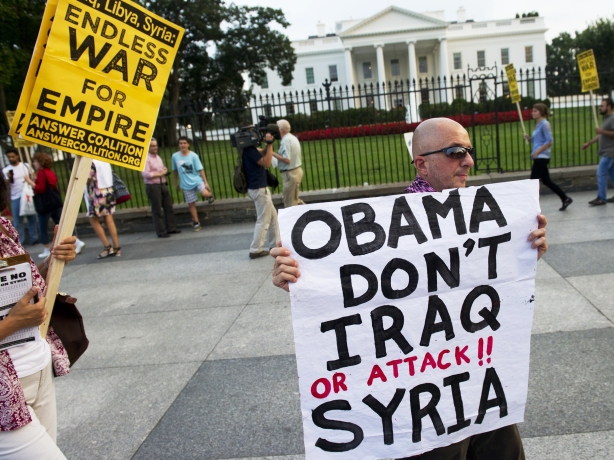
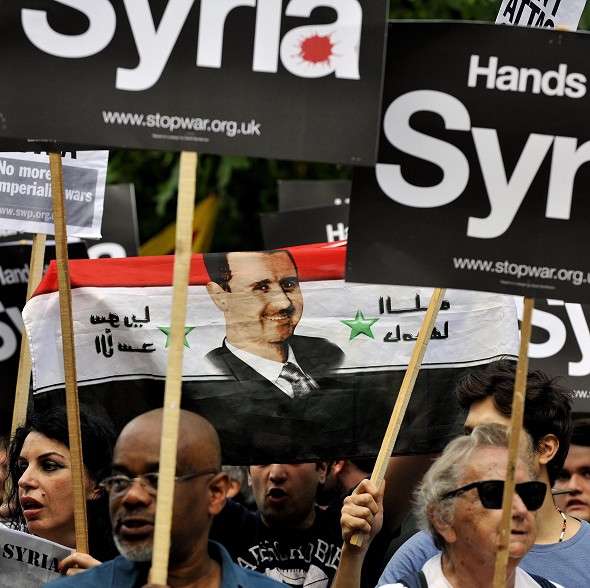

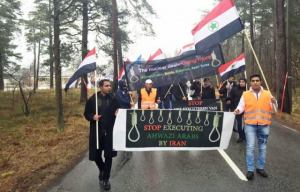

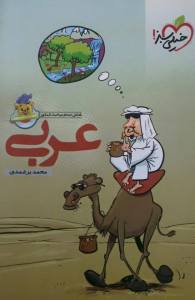
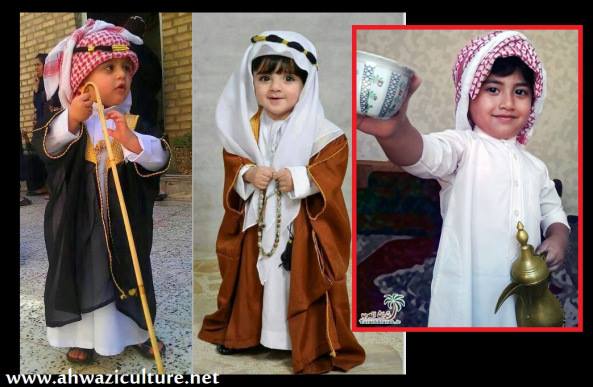
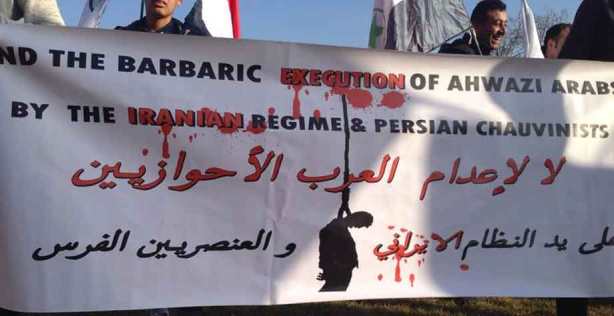
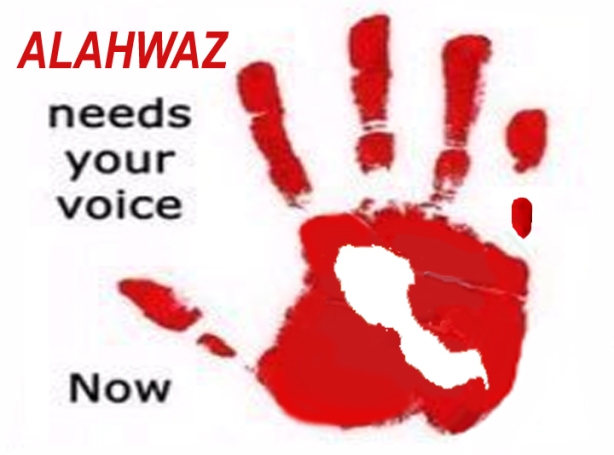
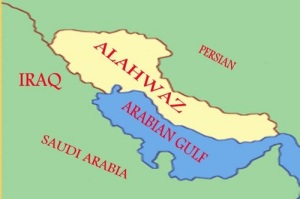 This majority has now shrunk to 70 percent, due to the regime’s policy of systemic and deliberate Persian immigration and colonisation of the region in order to alter its demographic composition.
This majority has now shrunk to 70 percent, due to the regime’s policy of systemic and deliberate Persian immigration and colonisation of the region in order to alter its demographic composition.